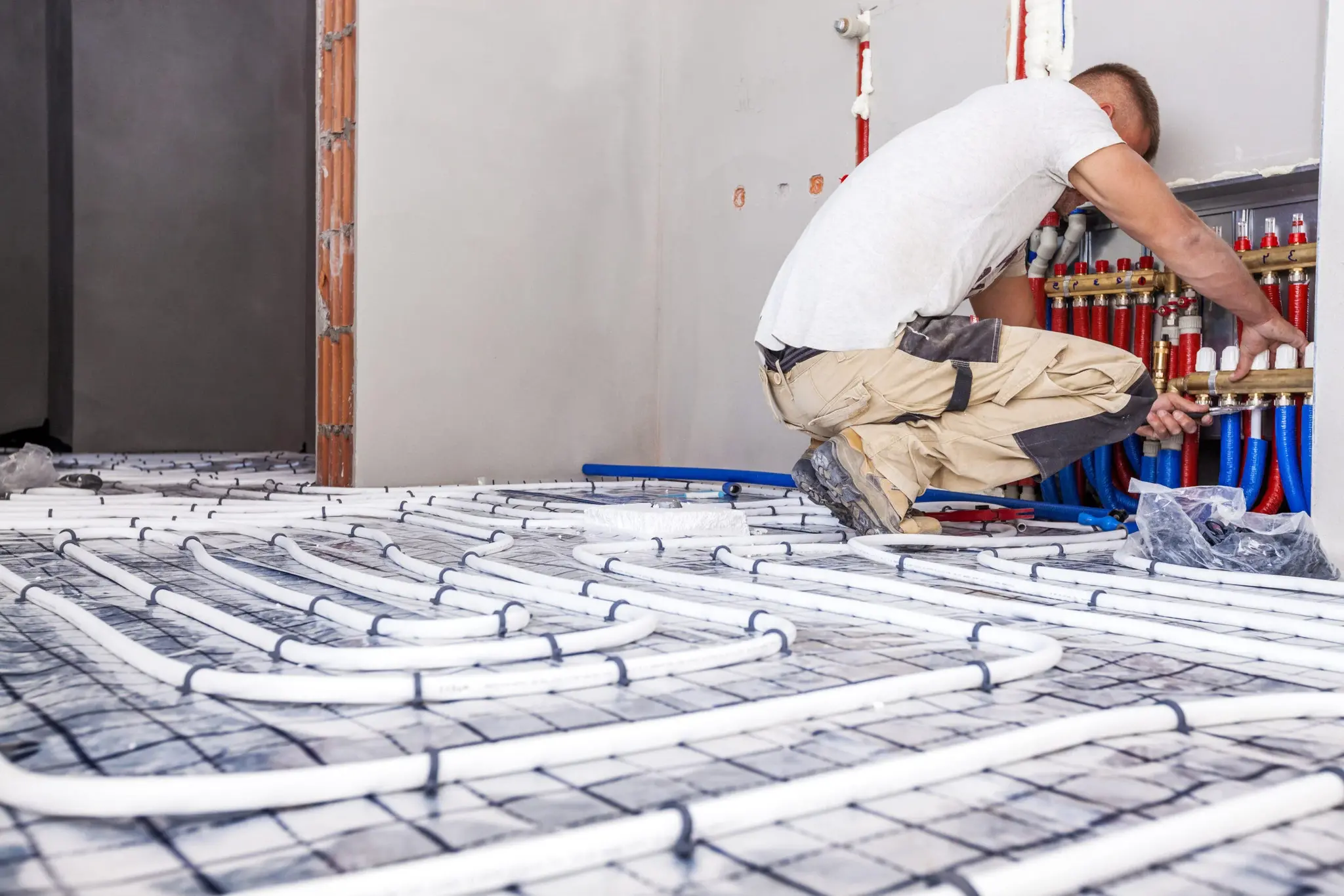Heat Pump and Underfloor Heating
Exploring the Key Features of Air-Water Heat Pumps
Introduction:
In our ever-changing world with an emphasis on environmental awareness, the use of renewable energy sources has become increasingly common. An excellent example of this movement is the air-water heat pump. These remarkable devices provide an efficient and environmentally friendly way to heat and cool our homes. In this blog post, we delve deep into the fundamental features that make air-water heat pumps such an attractive choice for modern homeowners.
Understanding Air-Water Heat Pumps:
An air-water heat pump is an advanced device designed to extract heat from the surrounding outdoor air and transfer it to a water-based system. This heated water can then serve two main functions: space heating and supplying hot water. The operation of these pumps is rooted in the principles of thermodynamics, allowing them to operate efficiently across a wide range of outdoor temperatures.
Exploring Key Features:
Heating and Cooling:
The primary purpose of an air-water heat pump is to regulate indoor temperatures, providing warmth during winter and cooling during summer months. In heating mode, the heat pump adeptly extracts heat from the outdoor air, even in cold conditions, and elevates it to a level suitable for heating your living spaces. When switched to cooling mode, the system operates in reverse, expelling heat from indoors and releasing it into the external environment.
Energy Efficiency:
Air-water heat pumps are known for their exceptional energy efficiency. For every unit of electricity they consume, they can produce three to five units of heat. This impressive result is achieved because they do not generate heat; instead, they excel in transferring it from one location to another.
Low Operating Costs:
Thanks to their high energy efficiency, air-water heat pumps have lower operating costs compared to traditional heating systems like gas or oil boilers. Although the initial installation costs may be slightly higher, the long-term savings on your energy bills can more than offset the initial investment.
Flexibility:
One of the remarkable advantages of air-water heat pumps is their flexibility. They can seamlessly integrate with various heating systems, including underfloor heating, radiators, and convectors. This flexibility ensures that the system can be tailored to the specific needs and infrastructure of your home.
Environmentally Friendly:
Air-water heat pumps are a sustainable solution as they primarily rely on renewable energy from the environment, specifically the air. By avoiding the use of fossil fuels, they drastically reduce CO2 emissions, making them a greener alternative to conventional heating systems.
Heating Hot Water:
Many air-water heat pumps are equipped with a hot water heating feature. This means you can avoid using a separate water heater, saving both space and money.
Installation and Space Requirements:
Installing an air-water heat pump may require more initial planning and space than traditional heating systems. These systems typically consist of an outdoor unit and an indoor unit, requiring sufficient outdoor space for unit placement. Additionally, adjustments to the heating infrastructure of your home may be necessary, such as installing underfloor heating or larger radiators.
Zoning and Control:
Air-water heat pumps are often equipped with advanced zoning and control options. This means you can individually control the temperature in different parts or "zones" of your home. This not only improves comfort but also contributes to energy savings by heating or cooling only the spaces in use.
In Summary:
Air-water heat pumps embody versatility, energy efficiency, and environmental awareness, positioning themselves as compelling alternatives to traditional heating systems. Their ability to provide heating, cooling, and hot water supply within one system makes them appealing to homeowners looking to reduce their energy costs and shrink their ecological footprint. Embracing this technology is not just a step towards a more sustainable future; it is a smart choice for modern living.






